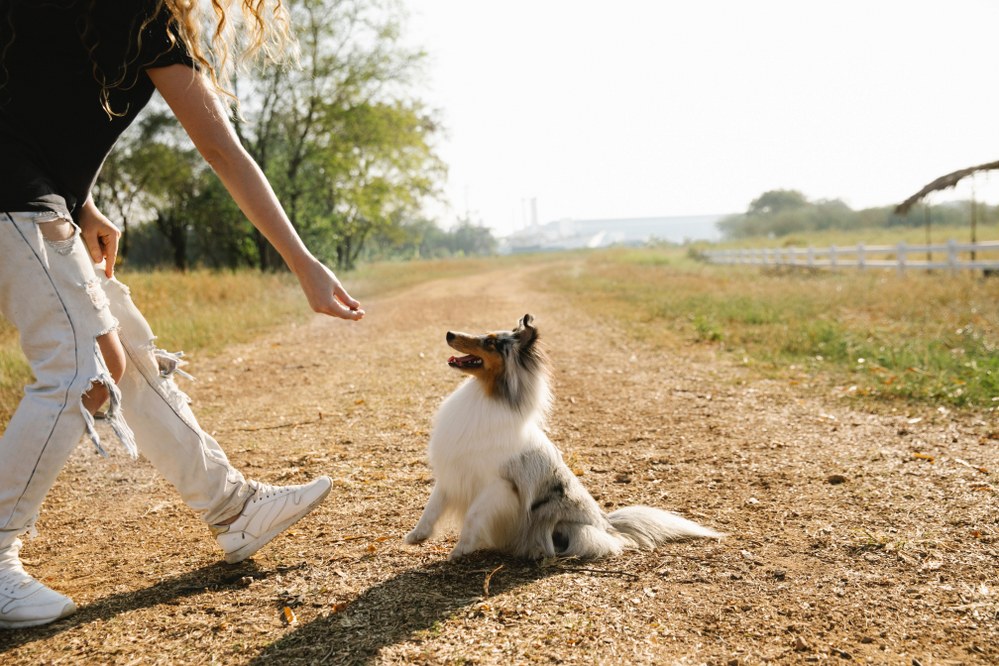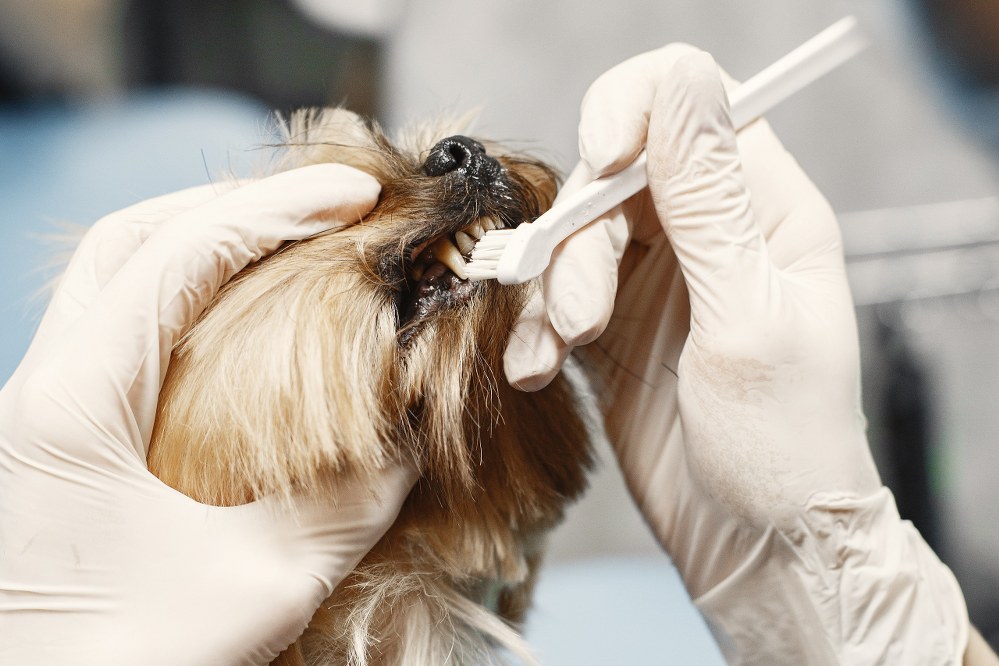How to Help Your Dog Live Longer
6 min read
Table of Contents
Top Tips to Keep Your Canine Healthy
There’s nothing quite like having a furry companion in life, whatever age you happen to be. Pooches keep their owners healthy and happy and are great company for both adults and children. There are endless benefits of owning a family dog, yet those who have experienced the joy of having a canine as a companion will also know the difficulties of having to let go and say goodbye. Nobody likes to think of their dog’s years as finite, however, the reality is that we usually outlive our furry friends. So, here are our top tips to help your dog live a longer and healthier life:
1. Avoid Overfeeding Your Dog
One of the best tips that you can take on board to help your dog live a longer life is not overfeed it. Find out how much food your furry friend needs, considering its breed, age, size, and level of physical activity. After all, you wouldn’t feed the same amount to your toddler that you give to your teen. So find out how to care for a large dog breed versus a little one. Get them on a healthy meal plan appropriate to their size, weight, and activity level, and avoid those excess treats.
2. Keep Your Dog’s Body and Mind Active
If you teach your dog to keep both its body and mind active, it will take longer to show serious signs of ageing. Just like humans, dogs need to get into a routine to feel the benefits of exercise. Try to take them for a walk every day or at least get them out in the fresh air as much as you can. Walking, running, and playing are great ways to keep dogs healthy and happy.
If you don’t have enough time to incorporate a daily walk, there are plenty of other ways to stimulate and exercise your dog. You can set up an agility course indoors or in your garden or get toys that will keep your pet physically and mentally active, such as food dispensing puzzle toys. Dogs also love playing fetch, tug of war, learning new tricks, and games of hide and seek. You can also rotate their toys as you would with young children to keep them interested.
3. Provide Nutritious Meals
The famous saying “you are what you eat” is also true for our canine companions. If you feed your dog the same meal every day, they will get bored and receive a limited amount of nutrition. Give them a rotational diet involving a variety of foods, including meats, fish, and different vegetables, such as healthy dog food with turkey, which provides them with both meat and plant proteins.
A balanced diet is important for healthy teeth and bones. It also helps to build and repair muscle and building a strong immune system. So, nutritious meals will give your dog a better quality of life and reduce the risk of potential illnesses giving them the chance to live longer. In contrast, a diet full of processed foods and additives can seriously decrease your pet’s lifespan.
4. Avoid Stress
Chronic stress can have a detrimental effect on our health, and the same is true for dogs. Canines suffering from fear and anxiety often have an impacted immune system making them susceptible to catching infections. Stress can also make us more prone to suffering strokes and heart attacks. It is therefore important to keep your dog’s stress levels down.
This can be done through providing a secure and stable home with an established routine and lots of positive reinforcement. Dogs, just like children, benefit from a daily structure around their mealtimes, play, exercise, and rest. In addition, rewarding positive behaviour through treats, praise, and petting, or a favourite activity makes them feel loved and secure.
To avoid separation anxiety, it is important not to leave your pup home alone for more than a few hours, especially when they are young. If you must go to work, find a neighbour, or dog walker, who can keep your furry friend company at some point during the day. When you go on holiday, try to take your dog along rather than leaving him at an expensive kennel where it will grieve your absence and, worst case, become depressed. Get them a pet passport, and take them on your solo activity holidays, weekends away, etc. They will enjoy a holiday much more than being stuck in a kennel, even if it involves a car ride or flight.
5. Keep your Canine Out of Harm’s Way
If you want your pet to stay out of harm’s way, you should be aware of your surroundings and how your dog may react in certain situations. For example, if you know they can get confrontational with other canines, make sure they are not left off the leash in potentially harmful situations. Also, never let them off the leash near traffic. Even a well-trained pooch could run across the road causing serious injury to himself and others.
Depending on your dog’s age and breed, you might also want to avoid walking them in very hot or very cold weather. Young puppies especially should not walk in all weathers and only once fully vaccinated. Older or smaller pooches and short hair breeds may also feel the cold more and might need a coat to protect them from frostbite and hypothermia. Hot weather, on the other hand, can lead to heat stroke or burning of the paws on hot pavements.
If your dog loves scavenging when you take him out for walks, you could buy a muzzle to stop him eating everything it sees on the way. This will avoid harmful items getting into their digestive system and making your pooch sick. Alternatively, you could train your dog to drop the item if you need a long-term solution. But even your home could contain harmful substances, that could make your dog very sick. So, keep any poisonous substances out of your pet’s reach to avoid dire consequences.
6. Stay On Top of Your Dog’s Dental Health
Dental health is just as important as physical health if you want to ensure your dog lives longer, however, many pet owners often overlook this vital aspect. Caring for your dog’s teeth prevents dental disease, which is very common in canines and can also be very painful. To avoid expensive trips to the vet, make sure you brush your canine’s teeth regularly and from an early age using special toothpaste for dogs. Providing dental chews and feeding a diet that prevents plaque and tartar build-up is also vital. Depending on the condition of your furry friend’s teeth, you may need to visit the vet to have your dog’s teeth professionally cleaned once or twice a year.
7. Visit Your Vet Regularly
Finally, don’t hesitate to take your canine companion for regular visits to the vet. Prevention is key if you want your dog to live longer, so make sure your furry friend’s vaccinations are up to date and that it has regular health checks. The earlier an ailment is spotted, the better as it will require less treatment and improve your dog’s chances of a longer life. As your pooch can’t tell you when it’s not well and will often hide its pain or discomfort, a visit to the vet will give you peace of mind if nothing else.
Consider getting pet insurance if you are worried about the financial aspect of visiting your vet. The larger your breed, the larger the bills will be, but even small canines can become very sick, so don’t let vet bills prevent you from seeking advice for your dog.

Many dog owners are perfectly happy to spend hundreds of pounds on their beloved pets. Yet this money is often spent on toys and treats, rather than sensible items, such as good quality pet food or visits to the vet that may extend your dog’s life. It’s just too easy to fall victim to those big puppy eyes, but it is important to stay firm with your pooch and make decisions that will benefit its health and lead to a longer life, not an early grave. We hope our top tips have inspired you to take steps to ensuring that your dog can live a happy, healthy, and long life.






